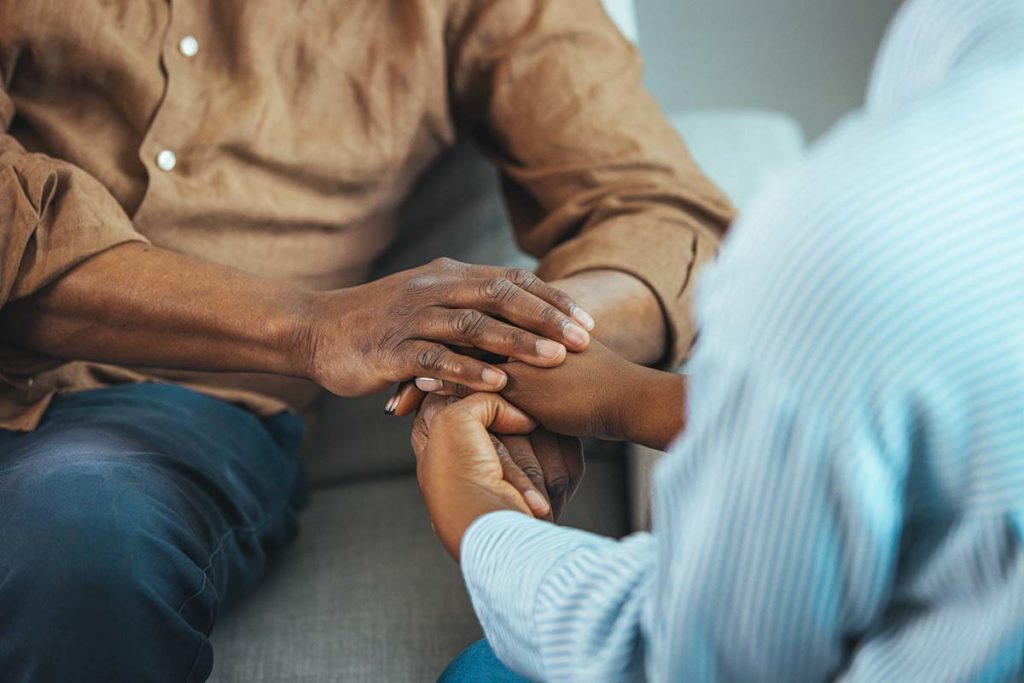Addiction has the potential to devastate relationships. As a family member or friend of someone who struggles with addiction, you need to build your own toolbox of resources as you support them on their recovery journey.
If you or a loved one is struggling with substance use, contact Serenity Grove today at 844.904.3485 to learn about our addiction treatment.
How to Support Someone in Recovery
Supporting someone in recovery can be a rewarding experience, but it can also be challenging. Here are some tips on how to support someone in recovery:
1. Have Hope
Have hope that your loved one can and will recover. Being positive and optimistic will help them to stay motivated on their journey. Some ways to maintain hope include:
- Educating yourself about addiction and recovery
- Attending Al-Anon or Nar-Anon meetings
- Reading inspirational stories about recovery
2. Educate Yourself
If you do not understand addiction, then educate yourself. It is hard to support someone’s disease if you do not understand it. Research addiction and any addiction treatment they may be undergoing. Research detox symptoms, recovery, and more to find out how you can support your loved one through every process stage. Talk to the person you love and find out what they need from you.
3. Change With Them
Life after treatment is going to look different for the person you love. While in treatment, they will build their toolbox. They may learn to practice mindfulness or use other techniques to help them with cravings.
Ways to change with them include:
- Engaging in new hobbies
- Learning mindfulness and practice
- Cook healthy meals together
4. Take Care of Yourself
Self-care is just as crucial for you as it is for your loved one. Taking care of yourself involves the physical and mental. Make sure you are getting enough sleep and eating well. Take time for yourself to explore your feelings and relax. Have open and honest discussions. If you are struggling with your emotions, find someone you can talk to and work through your feelings with.
5. Set Boundaries
While you want to support your loved one, it is not healthy for you to be at their beck and call. It is essential to understand the difference between enabling and supporting. If you set boundaries but then allow your loved one to violate them, it is a form of enabling.
6. Remove Temptation
Is your loved one coming home to you after leaving treatment? Make sure that the home is empty of drugs and alcohol. When you go out to eat, try to order non-alcoholic beverages. If you have friends that use, stay away from those gatherings and find new activities to enjoy together that support a sober lifestyle.
7. Understand Relapse
Relapse happens. However, it does not mean the person you love failed. It simply means that, for the moment, they need extra support. When relapse happens, it does not mean that long-term sobriety is at risk. Talk to your loved one and be a support.
Make sure that you share your concerns in a way that is kind and non-judgmental. Encourage them to:
- Talk to their sponsor or counselor
- Attend a support group meeting.
Support in Recovery at Serenity Grove
Recovery is a lifelong process; your loved one will need your support. Make sure you take care of yourself and set healthy boundaries on this path. If you want to know more about addiction or addiction treatment options, take the time to check out Serenity Grove. Serenity Grove is a dual diagnosis treatment center to support you and your loved one through the recovery journey. Contact us at 844.904.3485 today for more information or questions.


